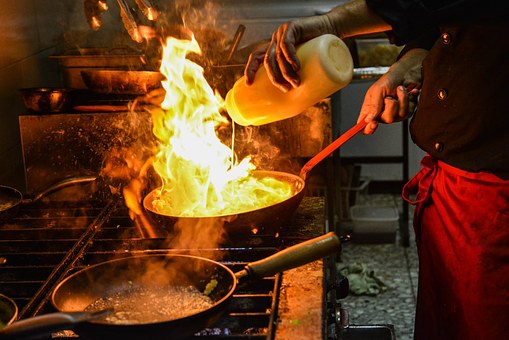We all know that chefs are very creative and enterprising individuals. However, they are not perfect. New chefs are still prone to errors, and some continue to make the same faux pas every time they cook. Examples of the biggest mistakes new chefs make include:
Trying Too Hard
A new chef needs to remember that sometimes less is more. When trying to impress clients, one may go all out and choose the most elaborate and expensive foods. The ingredient list will be super long and the prep time even more so. This will make the production much more prone to errors. The end result may be a jumble of interesting but unbalanced menu items. It is more efficient and timely to produce a simple, yet elegant meal. A personal chef will keep ingredients to a minimum, prep time as short as possible, and focus on quality instead of quantity.
Failing to Delegate
For smaller events, a chef may work alone. But for larger dinner parties and gatherings, extra assistance may be needed. It’s one thing to have extra help, but it’s necessary to learn how to use it. Continuing to do everything individually while only allowing helpers to assist with trivial duties may lead to disaster. A new chef must learn how to trust assistants and delegate larger portions of the workload to them. If this doesn’t happen, the food for the event could run late, be haphazardly thrown together due to pressure and time restraints, or be burnt or destroyed due to too many pots in the fire. Delegating efficiently is a true strength and will make the professional chef a stronger and much more capable leader.
Poor Timing
Poor timing is often a result of a lack of organization. The new chef must learn to work with the recipes and time the entreé items to finish all at the same time so they can be served together; this is a dilemma that many chefs struggle with. Sometimes there is a lack of oven and prep space, a short prep time, and foods which must be re-done due to improper ingredients or overcooking. If a chef is going to work for a personal chef service, he or she will need to practice techniques and be sure they are timed to perfection. Learning to work with the space, equipment, and stay in allotted time frames is also crucial.
Too Much Emphasis on Presentation
Food should always speak for itself. Adding excessive garnishes, painting the plate with too many sauces, or even adding bouquets of edible flowers to the meal may make your creations look busy and even confusing. Stick to simple additions that will keep all the focus on the food itself. Strive for color and balance in the meal items, not with excessive extras on the plate or in the buffet pan.
Lack of People Skills
New chefs often struggle to deal with others. They may not know how to talk to assistants who work with them or how to converse with a client. These are skills which must be developed over time. Reading books such as the classic “How to Win Friends and Influence People” by Dale Carnegie may be a big help to the fledgling chef. Make every effort to practice giving directions and in speaking with clients about their food preferences.
As you can see, a new chef has many challenges that must be worked on to become a true professional. When negative work habits have been overcome, and more efficient skills start to develop, you’ll be a top chef and in demand.
